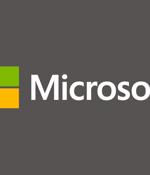Security News

Cisco warned customers today that two security vulnerabilities in the Cisco AnyConnect Secure Mobility Client for Windows are being exploited in the wild. [...]

Cisco warned customers today that two security vulnerabilities in the Cisco AnyConnect Secure Mobility Client for Windows are being exploited in the wild. The AnyConnect Secure Mobility Client simplifies secure enterprise endpoint access and enables employees to work from anywhere while connected to a secure Virtual Private Network through Secure Sockets Layer and IPsec IKEv2.

Tech giant Apple on Monday rolled out updates to remediate a zero-day flaw in iOS and iPadOS that it said has been actively exploited in the wild. The iPhone maker said it addressed the bug with improved bounds checking, while crediting an anonymous researcher for reporting the vulnerability.

A remote code execution flaw in the open-source Apache Commons Text library has some people worried that it could turn into the next Log4Shell. However, most cybersecurity researchers say it is...

A free unofficial patch has been released through the 0patch platform to address an actively exploited zero-day flaw in the Windows Mark of the Web security mechanism. Windows automatically adds MotW flags to all documents and executables downloaded from untrusted sources, including files extracted from downloaded ZIP archives, using a special 'Zone.Id' alternate data stream.

Zimbra has released patches to contain an actively exploited security flaw in its enterprise collaboration suite that could be leveraged to upload arbitrary files to vulnerable instances. Tracked as CVE-2022-41352, the issue affects a component of the Zimbra suite called Amavis, an open source content filter, and more specifically, the cpio utility it uses to scan and extract archives.

Fortinet urges customers to urgently patch their appliances against a critical authentication bypass FortiOS, FortiProxy, and FortiSwitchManager vulnerability exploited in attacks. The company released security updates to address the flaw last week and it also advised customers in private alerts to disable remote management user interfaces on affected devices "With the utmost urgency" to block attacks if they can't immediately patch.

Proof-of-concept exploit code is now available for a critical authentication bypass vulnerability affecting Fortinet's FortiOS, FortiProxy, and FortiSwitchManager appliances.Ai security researchers released a proof-of-concept exploit and a technical root cause analysis for this vulnerability today, following an announcement that a CVE-2022-40684 PoC will be made available this week.

Two weeks ago we reported on two zero-days in Microsoft Exchange that had been reported to Microsoft three weeks before that by a Vietnamese company that claimed to have stumbled across the bugs on an incident response engagement on a customer's network. One day ago [2022-10-11] was the latest Patch Tuesday.

Microsoft's Patch Tuesday update for the month of October has addressed a total of 85 security vulnerabilities, including fixes for an actively exploited zero-day flaw in the wild. Of the 85 bugs,...